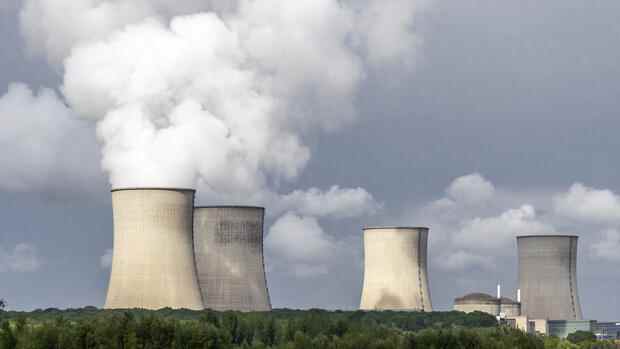The French network operator RTE rules out a total blackout in the country’s power supply in winter.
(Photo: Paul-Langrock.de)
Paris French Prime Minister Élisabeth Borne urged the population to save energy: “If everyone assumes their responsibility, there will be no interruptions in supply,” Borne said in Paris on Wednesday. The energy network operators believe that France is relatively well prepared for the winter when it comes to electricity and gas. Her assessment: the next few months will be difficult, but the risks are manageable.
Electricity grid operator RTE said France would “under no circumstances” experience a blackout. By this, the company means a “complete loss of control” in the power grid. In the worst case, the supply could be selectively restricted; even this scenario is very unlikely. A decisive factor is how cold the winter will be: Because many French people heat with electricity instead of gas as in Germany.
If the winter is relatively mild, “they probably won’t hear anything from us,” said RTE boss Xavier Piechaczyk. Even for the worst-case scenario, additional factors would have to come together in addition to exceptional cold, such as a lack of gas or the refusal of citizens and companies to voluntarily reduce consumption.
However, the French forecasts are also based on the fact that a number of nuclear power plants will be restarted in autumn and winter. Most recently, only about half of the country’s 56 reactors were connected to the grid. Borne said the government will ensure that the energy company EDF “complies with its plan for ramping up its nuclear reactors”.
Top jobs of the day
Find the best jobs now and
be notified by email.
Behind the nuclear doldrums are planned maintenance measures for reactors that were postponed during the Corona period and are now being carried out at the same time. In addition, a problem with rusted pipes in the cooling system is being investigated for some reactors.
>> Read here: Why the French energy crisis is fueling the German nuclear power debate
The network operator RTE said on Wednesday: “In the past few months, the uncertainties in nuclear power have decreased in a positive direction.” The rust problem has been limited and the repair strategy has been approved by the nuclear safety authority ASN.
The company GRTgaz, which is responsible for long-distance gas pipelines, was also cautiously optimistic on Wednesday: the gas storage facilities were already 94 percent full. France should be able to meet domestic gas demand in the winter while helping neighboring European countries. According to the company, as with electricity, the gas supply also depends, at least in part, on meteorological conditions.
Energy deal between Germany and France
France has promised gas deliveries to Germany if the Federal Republic supports the country in return with electricity deliveries, especially at peak load times. Thierry Trouvé, head of GRTgaz, spoke of a “win-win situation” for both countries with regard to the planned deal. From October it will probably be possible to send up to 100 gigawatt hours of gas to Germany every day. However, the governments in Paris and Berlin have not yet officially announced the details of the agreement.
Borne meanwhile prepared her compatriots for higher energy tariffs. Unlike in Germany, French households have not been confronted with skyrocketing electricity and gas bills. The government in Paris has already spent more than 24 billion euros to cap the prices of electricity and gas for private end consumers and to finance a fuel discount of currently 30 cents per liter.
The increase in electricity prices this year was limited to four percent, and gas tariffs have even been frozen since October 2021. In the coming year, the government intends to allow electricity and gas prices to increase by 15 percent. Finance Minister Bruno Le Maire put the cost of the less generous cap at 16 billion euros.
The state is holding back a little when it comes to energy aid
Prime Minister Borne said that the state is still giving people a lot of help. Without the limit, the average household gas bill would rise by EUR 200 per month instead of the current EUR 25. For electricity, the increase is 20 euros a month, compared to 180 euros without the intervention.
The expiry of the tank discount was already certain before Borne’s press conference. After the temporary increase to 30 cents per liter of petrol and diesel in September, the government’s plan is to lower the discount to 10 cents per liter from November and end it entirely by the end of the year.
Twelve million low-income households are to be supported once in winter with an “energy check” amounting to between 100 and 200 euros, depending on earnings. The Ministry of Finance puts the cost of this measure at 1.8 billion euros.
More: Despite the slump in growth, France is sticking to its budgetary targets
